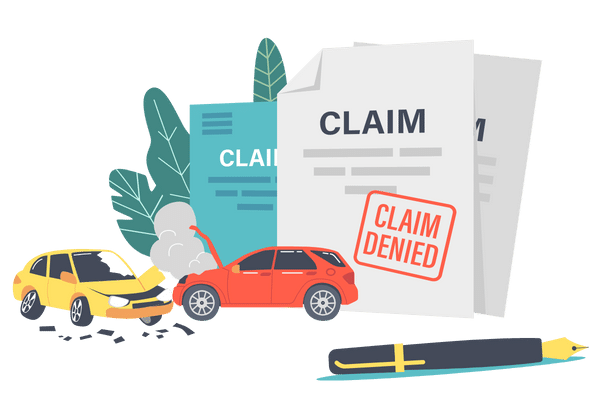What to do if a car insurance company is stalling?
What to do if a car insurance company is stalling: Navigating the aftermath of an accident and dealing with injuries can be a daunting experience. The added challenge of interacting with an insurance company, particularly when faced with an unreasonable insurance adjuster or delays in the claims process, can compound the frustration. The ultimate goal is to return to normalcy as swiftly as possible after an incident, but what happens when your insurance company prolongs the claim resolution?
In such instances, expediting the claims process becomes crucial. However, if your insurance provider continues to stall even after receiving all the necessary documentation, it might be time to consider seeking legal assistance, especially if the situation evolves into a bad faith claim.
Understanding Delays in Claim Settlement

Several reasons can contribute to an insurance company’s delay in settling a car accident claim. One common factor is the overwhelming workload of insurance adjusters, who often juggle hundreds of files simultaneously. The sheer volume of cases can lead to delays, leaving claimants in a state of uncertainty.
Another cause for delay is the wait for additional documentation, such as medical records or accident reports. Some insurance companies may subject these documents to a round-table review or require approval from a supervisor before taking further action. This procedural delay, while intended to ensure accuracy, can result in extended waiting periods for claimants.
Fraud suspicions also play a role in slowing down the claims process. If an insurance company perceives a claim as potentially fraudulent, it may conduct a thorough investigation before proceeding. While this is a necessary step to prevent fraudulent payouts, it can inadvertently contribute to delays for legitimate claimants.
In more troubling cases, an insurance company may be acting in bad faith. Bad faith insurance occurs when an insurer fails to meet its obligations to clients, such as unreasonably delaying the payment of a legitimate claim. This can manifest in various forms, including misrepresentation of insurance contract terms, failure to disclose policy coverage, or demanding excessive proof from policyholders. Recognizing the signs of bad faith is essential, and seeking legal advice is recommended if bad faith practices are suspected.
Unpacking Bad Faith Insurance
Bad faith insurance extends beyond simple delays; it involves a breach of the insurer’s obligations. This breach may include refusing to pay a legitimate claim or excessively prolonging the investigation and processing of a claim. In the realm of automobile insurance, bad faith incidents commonly occur in the context of Under-Insured Motorist (UIM) or Uninsured Motorist claims.
Insurers engage in bad faith when they manipulate the terms of an insurance contract to avoid fulfilling their payment commitments. This can involve withholding coverage details from policyholders, demanding unreasonable proof of coverage, or arbitrarily rejecting claims despite sufficient proof of loss. Identifying these bad-faith practices is crucial for policyholders, and consulting with a lawyer is advisable when suspicions arise.
Determining if Your Claim is Stalled
In an ideal world, insurers would prefer not to pay claims at all. Legal requirements compel them to settle claims, but the process may take longer than expected. State laws often mandate that insurance companies act reasonably, which includes resolving claims within a reasonable timeframe. Some states impose specific deadlines for acknowledging and processing claims. If an insurer exceeds these timelines without a valid reason, they may be subject to financial penalties, including interest, attorney’s fees, tort damages, and punitive damages.
Understanding the legal framework is vital, as time limits vary between states. If your insurance company exhibits a pattern of stalling, consulting with an experienced attorney is essential to explore the appropriate steps for expediting the settlement process.
Types of Claims Often Delayed
Insurance companies are notorious for employing delay tactics across various claim types. Whether it involves Under-Insured Motorist (UIM) claims, homeowner claims, commercial property claims, automobile, truck, or motorcycle accident claims, delays are a common strategy. Additional categories prone to delays include claims related to damages caused by hail and storms, personal injury claims, insurance claims for medical payments coverage, and more.
Identifying these patterns can empower claimants to anticipate potential delays and take proactive measures to expedite the process.
Ensuring a Fair Payout
When holding a valid claim, it can be surprising to discover the thoroughness of an insurance company’s investigation. Some insurers may investigate extensively, while others may barely scratch the surface, relying solely on the documents provided during the mandatory claim investigation. Insurance companies are obligated to investigate both facts supporting and challenging claims.
Insurance adjusters, however, may encounter scheduling and availability issues, particularly in cases where numerous parties are affected by the same incident. Some insurance companies may await police reports or endeavor to determine fault before progressing with a claim. Navigating these intricacies can be challenging, especially for individuals filing a claim for the first time.
Contributing to Claim Progress
Claimants can play an active role in moving the claims process forward. Organizing and storing accident records in a readily accessible manner can expedite the investigation. Insurance adjusters may overlook or misplace documents, and claimants can assist by promptly providing necessary information during communication.
Maintaining written communication is recommended, whether through emails, letters, or, at the very least, text messages. This ensures a documented trail of interactions, preventing potential disputes in the future. While phone calls may be the preferred method for insurance companies, they often result in he-said/she-said situations during disputes.
In addition to documentation, cooperation is key. If the claim is against your insurance company, there is a legal and contractual obligation to cooperate. Providing necessary information promptly is critical in this scenario. However, when dealing with the other party’s insurer, caution is advised, as they do not represent your interests and may use information to their advantage.
The Role of Legal Assistance
In cases of prolonged delays or suspected bad faith practices, seeking legal assistance becomes imperative. An experienced attorney can navigate the complexities of insurance law, ensuring that your rights are protected and the claims process is expedited appropriately. Legal professionals can assess the situation, guide you through the necessary steps, and represent your interests in negotiations with the insurance company.
Conclusion
Streamlining the claims process requires a combination of patience, organization, and, at times, legal intervention. Understanding the reasons behind delays, recognizing signs of bad faith insurance, and actively participating in the claims process can empower individuals to navigate the complexities of insurance claims successfully. By staying informed, proactive, and seeking legal assistance when needed, claimants can work towards securing a fair and timely settlement, allowing them to move forward after the challenges posed by an accident and injuries.
Frequently Asked Questions:
What to do if insurance company is stalling in USA?
The most powerful tool you have to make an insurance company stop delaying is to take legal action by filing a lawsuit. In many cases, I’ve successfully settled claims shortly after filing a lawsuit. This is because when you file a lawsuit, it sends a strong message that you won’t let the insurance company delay without facing consequences.
Why do insurance companies take so long?
Well, insurance companies earn money by investing the payments you make every month. So, when they delay paying your claim, it gives them extra time to use the interest earned from your payments. This boosts their profits and adds to their overall earnings.
How Long Does It Take for Insurance Settlement Negotiations?
When dealing with injury claims, insurance companies often don’t want to pay a lot. So, negotiating a settlement can take a bit of time. Usually, it takes a few weeks or months after receiving the initial offer.
Do insurance companies earn money by saying no to claims?
Well, they’ve found a way to make more money and keep shareholders happy. Instead of flat-out denying claims, they make more profit by taking their time. The law doesn’t always say they have to pay quickly, just that they have to respond to claims.
What if the insurance company is taking too long in Texas?
Just give us a call on our Help Line at 800-252-3439. We’re here to answer your calls from 8 a.m. to 5 p.m. Central time, Monday through Friday. We can assist you with any issues you have against insurance companies, agents, or adjusters.
How to Scare an Insurance Adjuster?
1). Understand How Insurance Adjusters Work.
2). Be Aware of How Adjusters Try to Pay Less.
3). Take Your Time to Check an Offer.
4). Say No to a Low Offer in Writing.
5). Complete Your Treatment Before Saying Yes to a Settlement.
Explore More: Discover related Topics for Further Insights and Guidance:
When is a Car a Write Off Insurance?
What is a Supplement in Car Insurance?
What if car insurance doesn’t pay enough?
How to Settle a Car Accident Without Insurance?
How to Describe a Car Accident for Insurance Examples






